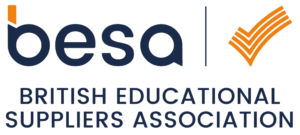- How do schools experience the LQF journey?
- What is their experience of assessment?
- What does their Quality Mark accreditation mean to them?
- Has the LQF journey and assessment been worthwhile?
Alderbrook Leading Edge School and Arts College
Making a start on learning
As a school we have been interested in learning for many years. The start of our journey involved all staff and pupils gaining an understanding of a useful learning language and, from this, a learning pedagogy all staff could adopt. We then set about the business of nurturing and developing this terminology into personal, social, strategic and cognitive habits of learning. Two years in, with all staff trained in ‘building learning power’, classrooms were buzzing with a refreshed teaching methodology and a desire, in most teachers, to explore how learning habits could be exercised and through the subject content of the lesson. For the great majority of teachers this made perfect sense and seemed to underpin all previous training for staff in all stages of their careers.
Losing momentum
A couple of years further down the line saw the ‘business’ of nurturing these skills in a large comprehensive school more difficult to sustain. The initial ‘buzz’ was fading and although we had some significant strategies well embedded by teachers for whom learning sat at the heart of their day to day practice, we were acutely aware of a general ‘tiredness’. We witnessed and an increasing patchiness in practice as teachers lost momentum and returned to their default ‘subject content and nothing else’ delivery. Whilst we sustained a successful ‘Learning 2 Learn’ course for our year 7s, we began to search for new ways to reinvigorate the focus on learning and dabbled with some fresh ideas. At a regional network meeting with other schools that had also introduced BLP into their schools around the same time, we discovered that they too seemed to be in the same ‘boat’. We found ourselves with no models to follow or case studies to explore – and therefore no obvious pattern upon which to create a learning improvement plan.
Finding a new direction
The opportunity to consider the Learning Quality Framework proved to be a timely boost for our morale and sense of direction. We decided that to go for assessment and accreditation would give us greater impetus than just looking at it.
Pulling evidence together for external assessment can sometimes be seen as a tedious business so we had put a day aside to pull together evidence needed to meet the criteria for ‘silver’ level – which is where we felt we would be. We were hugely reassured to find that after an hour, most of the paper based evidence to make our case was there. This is because the bulk of the evidence is drawn from observations of practice and interviews with staff and students by the assessor. We realised that the criteria we couldn’t so easily evidence (issues around progression and parental involvement) we likely to become our targets for development. We then looked at the ‘gold’ level criteria and determined we wanted to become that school.
The assessment
The assessment process took two days. Interviews with the Leadership Group, a cross section of staff, a cross section of middle leaders, a cross section of students, scrutiny of documentation and plenty of lesson observations all contributed to the evidence base that the assessor used to form a view. Scary as it may sound, the process was at all times developmental and formative.It gave the school an opportunity to reflect on the progress it had made to date and to begin to focus on where it might go next. The assessor, much more critical friend than ‘inspector’, worked with us to help us to understand where we were and importantly, what to do next. The report, which arrived a little later, confirmed our judgment of Silver level, but critically gave detailed advice about what we needed to do next to secure further improvements and move towards Gold accreditation – something that we would have found difficult without the external perspective that the process gave us.
Pulling together the evidence in preparation for assessment helped us to identify where we were at the time, and the assessment feedback confirmed this and, most importantly, gave us some clear strategic targets for improvement. As a result of the assessment feedback, we have: developed a Junior Leadership Team to lead on ‘learning issues’; introduced peer coaches who conduct learning conversations with other pupils; initiated a ‘learning theme’ each half term to encourage transferability; identified non timetable days to focus discreetly on learning habits; launched an Independence Award for our KS3 and a ‘record of learning’ for KS4; begun to explore what progression looks like in these skills; identified strategies to involve parents more actively in promoting the relevance of learning skills outside school and beyond school life.
The Quality Mark application not only gave us reassurance and confirmation that what we have been doing was logical and right, it also gave us a development tool and a vision that drew together the vital strands of a school’s learning culture…and a sense of where we are now headed …gold.
